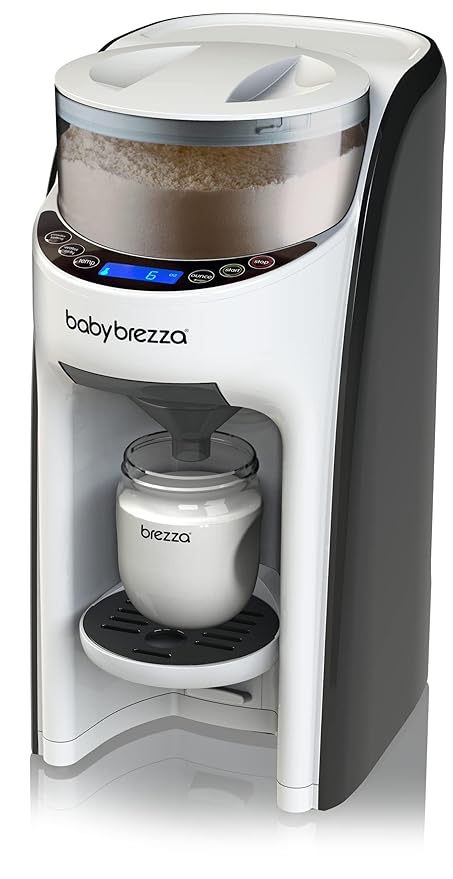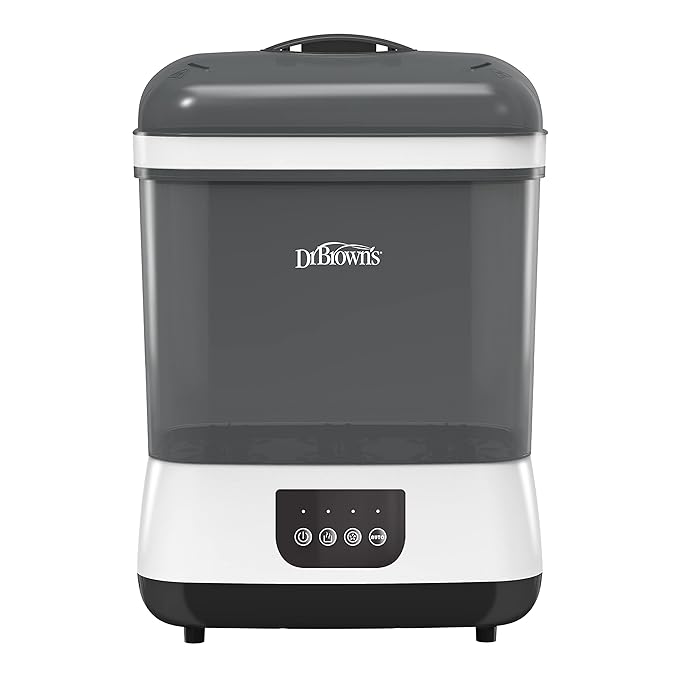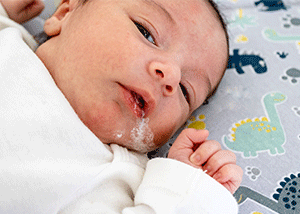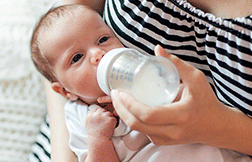Overfeeding is the leading cause of a baby's discomfort and fussiness. When you overfeed breast or formula milk to your baby, they cannot digest it completely. Furthermore, due to overfeeding, the baby swallows air, which causes stomach discomfort that leads to more crying and spit-ups. Most parents overfeed their babies unintentionally. Here are some common signs that help you indicate that you are overfeeding your baby.
Other Topics You Might Like
Helpful Products You Might Like

Baby Brezza Pro Advanced Formula Dispenser Machine

Dr. Brown's All-in-One Sterilizer and Dryer for Baby Bottles

Philips Avent Premium Fast Bottle Warmer
"(Paid Links)" 
Why Does Overfeeding Occur?
Overfeeding a newborn is highly uncommon, but it does occur. It is more common in bottle-fed newborns as it makes it simpler for parents to monitor how much food their child eats. Additionally, drinking from a bottle requires less work, so newborns could unintentionally consume too much milk when being fed. See your pediatrician if you notice that your baby is overfed. A doctor will examine the baby's length, weight, and development. Still, as long as the infant is thriving, they probably eat just fine.
8 Signs You're Overfeeding Your Baby
Continuous Spitting
Your baby is full when you observe that they turn away from the bottle and spit afterwards. Spit-up is a common among babies. But when the baby is overfed, this might occur often.

Vomiting
It is an important sign that a baby is being overfed. An overfed baby is often more prone to vomiting, which could eventually result in health issues.
Feeling gassy and bloated

Overfeeding often leads to diarrhea, cramps, and bloating. This occurs particularly when the infant overdrinks from the bottle. Your baby may have gas and bloating.
Decreased Interest in Feeding
Your baby may tell you they are complete if they keep pushing the bottle or breast away and show a lack of interest in feeding. If you still try to eat them more, it can result in overfeeding cause discomfort.
Frequent Bowel Movements
A baby's bowel movements may vary; an abrupt increase in frequency or consistency may indicate overfeeding. Looser stools might result from overeating since the digestive system finds it difficult to handle too much food.
Rapid Weight Gain
It is crucial to watch your baby's weight. While some weight growth is normal and healthy, it may be an indication that your baby is being overfed if it happens quickly or excessively. Should you be worried about your baby's weight trajectory, speak with your pediatrician.
Sleep problems
A child that is overfed may have trouble in sleeping. It might be time to take a closer look at your baby's feeding schedule if they are waking up a lot and have trouble sleeping.

Flatulence and foul-smelling stools
If your baby has flatulence and foul smelling stools, it is also assign of overfeeding.
Some tips to feed the baby properly
To make sure you are feeding your baby the right amount of food, consider the following tips.
Follow Their Cues

Never ignore your little angel's hunger cues. keep an eye on their needs as much as you can. it is never a good idea to follow a strict routine for feeding your baby.
Portion Control
For formula-fed baby, measure the proper amount of formula. With time, you will get a proper idea of how much your baby consumes per day.
Paced Bottle Feeding
For bottle-fed babies, use paced bottle feeding. Always hold the bottle horizontally; it will allow your baby to suck and swallow quickly, mimicking breastfeeding.
Burping During Feedings
Always burp your baby after feedings. It can release any trapped air and reduce discomfort.

Consult a Pediatrician
If you see any unhealthy change in baby's weight, always consult a pediatrician. They can guide you well about your baby's growth and health.
